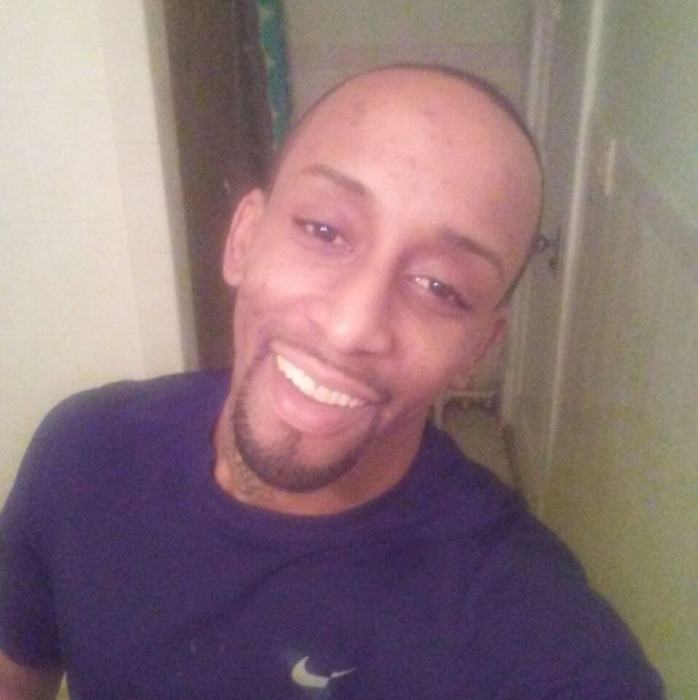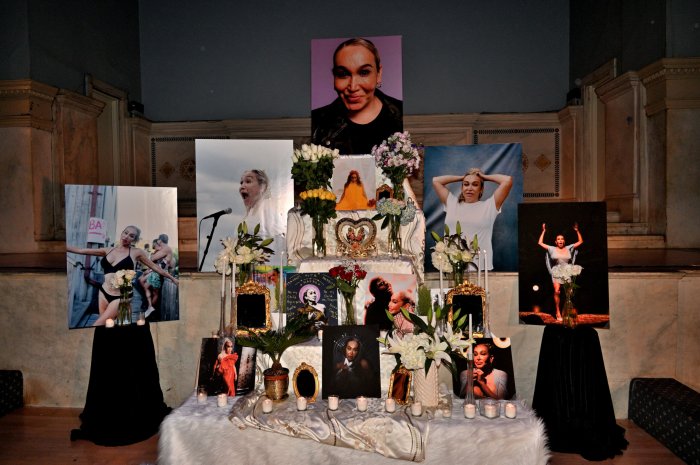Renato Seabra claims he acted as a “conduit for God” when he castrated and killed Carlos Castro.
The trial of Renato Seabra, the accused killer of Carlos Castro, opened with the prosecution offering facts that could lead the jury to conclude the 23-year-old murdered the 65-year-old Portuguese TV personality and gay activist in a rage because their relationship was ending.
As expected, the defense said in its opening statement that Seabra was insane when he committed the brutal 2011 killing and cannot be held legally liable for the crime.
“[Seabra] wanted to pursue a modeling career, to get famous, to make money,” Maxine Rosenthal, the assistant district who is prosecuting the case, told jurors in Manhattan Supreme Court on October 5 during her opening statement. “He wanted exposure to the better things in life.”
The two met on Facebook in October of 2010 and traveled to New York for a “fabulous, fun filled, career enhancing, all expenses paid” three week vacation, Rosenthal said. Castro was picking up the tab for the trip, and, in addition to sightseeing, the older man asked Wanda Pires, a friend of his for more than 20 years, to get Seabra appointments at New York City modeling agencies. By January 6, the relationship was strained.
“Something was up,” Rosenthal said. “Tension was in the air. Carlos was unhappy.”
Pires told police and the prosecutor that Castro reported to her that Seabra had been flirting with two young girls during an evening out and the two had fought.
“We’ve been fighting all night,” Rosenthal said Castro told Pires. “He’s not the person that I thought.”
That the relationship was in trouble was evident to a waitress who served them breakfast on January 7 in the Midtown hotel where they were staying.
“It is so obvious that the waitress who had been serving them all week long noticed,” Rosenthal said.
The two planned to return to Portugal on January 16, but Castro changed the tickets to a January 9 return flight. Those tickets were in the hotel room the two men shared.
Pires told police and the prosecutor that Castro told her he was going to end the relationship. The judge in the case, Daniel P. FitzGerald, ruled on September 24 that the prosecution cannot use statements about the relationship ending because they are uncorroborated and there is no evidence that Castro ever told Seabra the relationship was over. The prosecution now aims to give the jurors facts that will allow them to reach that conclusion on their own.
Some time after noon on January 7, Seabra launched an hour-long attack on Castro that included strangling him, striking Castro’s head with his feet and a computer monitor, and removing his testicles with a corkscrew. The younger man then showered and dressed in a suit.
Seabra met Pires as he was leaving the hotel at roughly 6:15 and would not tell her where Castro was or give her their room number.
“Carlos won’t be leaving the room,” Rosenthal said Seabra told Pires when he encountered her in the lobby.
Pires had been calling the hotel for several hours on January 7 trying to reach Castro. Rosenthal told jurors that Pires made 33 calls to Castro’s cell phone, 19 calls to the hotel, and had sent Castro two text messages and an email.
Seabra walked to Penn Station where he asked a cab driver to take him to the nearest hospital. Seabra ultimately ended up in Bellevue, where he gave a statement to police. Seabra had his passport, other forms of identification, $1,600 in cash, and additional cash in euros on him when he arrived at the hospital.
The defense opened with its expected case –– that Seabra believed he was acting on instructions from God when he made the attack.
“This case is about mental illness and how mental illness sent Renato Seabra on a mission from God,” said Rubin M. Sinins, an attorney who, with David Touger, is defending Seabra.
Seabra believed Castro was the devil and that there were demons in his testicles, “and that by pulling them out something would be right with the world,” Sinins told jurors. Seabra placed one of Castro’s testicles on each his wrists during the attack.
“He then goes out wandering the streets of Manhattan touching people to cure them,” Sinins said. “He went on the streets to continue God’s work as God’s special messenger.”
In his statement to police roughly 36 hours after the killing, Seabra did not say he was acting on instructions from God.
Defense attorneys typically try to keep jurors from seeing the more grisly evidence in criminal cases, but Sinins warned jurors that they would be seeing the worst.
“This case is about the why, and by showing you the how you’ll understand the why,” he said. “The manner of death is consistent… with legal insanity.”
Sinins told jurors they would see the medical records from St. Luke’s Roosevelt Hospital, the first hospital Seabra visited, Bellevue, the city’s Department of Correction, and defense experts who interviewed the defendant. They all agree that Seabra was mentally ill, his attorney said, and the prosecution’s expert is alone in asserting that Seabra was not psychotic.
“The case is about mental illness, it’s not about rage,” Sinins said.
The trial will continue on October 10.

































